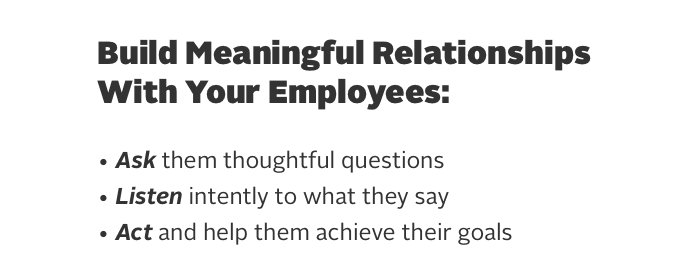Friday Q&A: How to deal with a great employee leaving
Every Friday, we’re answering your questions about business, startups, customer success and more.
Happy Friday!
This week’s question comes from Mohamed M., who asks:

This is a big deal for startups.
When an employee leaves a 20‑, 200‑ or 1000‑person company, bouncing back isn’t a huge deal, especially if the company has built a brand that talented people want to work for.
When an employee leaves a 4‑person company, that’s a quarter of the workforce gone in an instant.
But it’s simply a fact of life: it happens.
It happened to us, it may have already happened to you, and it’ll most certainly happen to most startups.
I wrote a longer post about this a while ago, but here are the main points to remember:
1) It’s Not Personal. Really.
If you want to hire the best (and I do), expect that they’ll behave like talented, ambitious people should.
Sometimes, they’ll outgrow the role you’ve given them. And if you can’t provide that next step, then someone else should.
They’ve worked hard and brought value to you and your team. Maybe they will again someday.
But for now, accept that it’s their time, wish them the best, and mean it.
2) Don’t Dwell On It, And Focus On THIS Instead
While good employees leaving is inevitable, not every single employee departure that happens is unavoidable.
So many startup founders—including me, in our early days—don’t do enough to make their teams love their jobs.
There are a lot of companies that think this means catered lunch or foozball tables in the office, but that’s superficial and doesn’t really get at the core of what makes great people love the work that they do and the business they do it for.
Ultimately, what it means will depend on your specific team, but I’ve found one great way to find out: ask, listen and actually act on what you hear.
Take the time, on a regular basis, to talk to your employees about their lives, goals and challenges. Ask them what they hope to accomplish, not just in the next week, but in the next year, five years and ten years in their careers. Listen intently to what they say, and think about how you can help them achieve that. And then act.

People have different goals.
Some will want to start a business of their own, become an executive in your company, have work/life balance so that they can focus their life on raising their family, work for a “dream” company someday, become an expert in a certain skill that they’ll be improving in their role, or any number of other dreams.
All are valid, and none are better or worse than any other.
But it’s important to know what that goal is, because if you can’t help them achieve their goal by giving them responsibilities that align with that goal, they’re going to ultimately be unhappy and ineffective in their position.
For more, check out Your Best Employees Will Quit. Here’s What To Do About It.